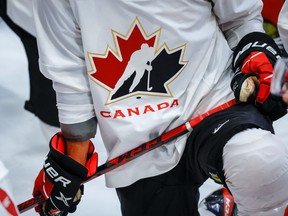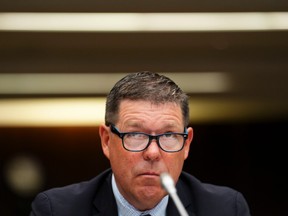Italy Adopts New LGBT Strategy Just Before Right-Wing Takeover
By Reuters
Oct. 7, 2022

Elena Bonetti arrives at Quirinale Presidential Palace, before being sworn in as Italy's equal opportunities and families minister, in Rome, Italy September 5, 2019.
REUTERS/Ciro de Luca/File

Italy's outgoing government has set a three-year strategy to fight anti-LGBTQ discrimination amid fears of a roll-back of rights under the upcoming right-wing rule.
Members of the LGBTQ community have feared a crackdown on their rights under a far-right leader
The outgoing Italian government has adopted a new strategy to fight discrimination against lesbian, gay, bisexual, transgender and queer people (LGBTQ), Equal Opportunities Minister Elena Bonetti said in remarks published Friday.
The move comes before a new government, led by far-right leader Giorgia Meloni's post-fascist Brothers of Italy party, takes over power.
Although Meloni had ruled out rolling back LGBTQ rights, she previously spoke out against what she called LGBTQ "lobbies," and her party repeatedly condemned same-sex parenting and gender fluidness.
Those remarks have sparked fears that the LGBTQ community could face threats and hatred, even if their legal rights remained in place.
What is Italy's new LGBTQ plan?
Speaking with the Reuters news agency, Bonetti said the strategy was not "controversial."
"We weren't very ideological, we were very concrete," she said.
The new plan is also in line with the "European strategy" on LGBTQ rights and anti-discrimination laws, she told broadcaster Rai 3.
The 2022-2025 plan proposes providing awareness courses for teachers, doctors, police and corrections officers on LGBTQ rights.
The 30-page document recommends adding specific anti-LGBTQ discrimination clauses in national labor agreements.
"The strategy makes rights concrete with a series of actions against violence and marginalization," Bonetti told the Italian daily la Republica in an interview published Thursday, adding that she hoped the new government would implement it.
How did Brothers of Italy react?
The party's spokesperson for equal opportunities, Isabella Rauti, condemned the move, saying it was wrong for an outgoing, caretaker government to commit its successor to a multi-year plan.
Brothers of Italy politician Eugenia Roccella told la Republica the move is "not only incorrect, but also senseless."
"The government has had two years to do so now... it's just a publicity stunt," she added.
Separately on Friday, Meloni slammed French European Affairs Minister Laurence Boone for commenting that Paris would "pay close attention to the respect for values and the rule of law" under the new government in Rome.
Boone's comments seemed to be "an unacceptable threat of interference against a sovereign member state of the European Union," Meloni said.
"I trust that the French government will immediately deny the words," she added.
fb/sms (Reuters, AFP)



















